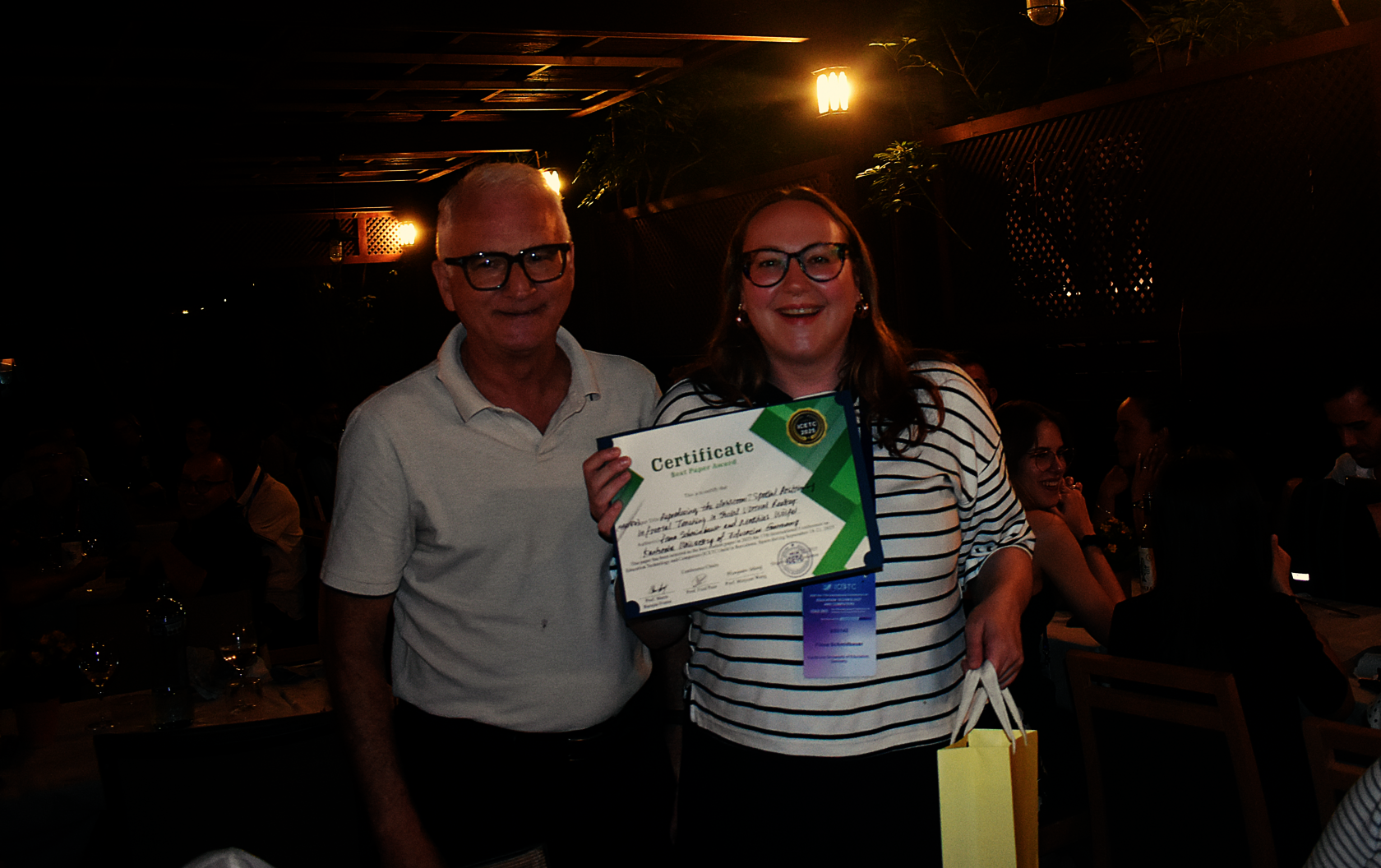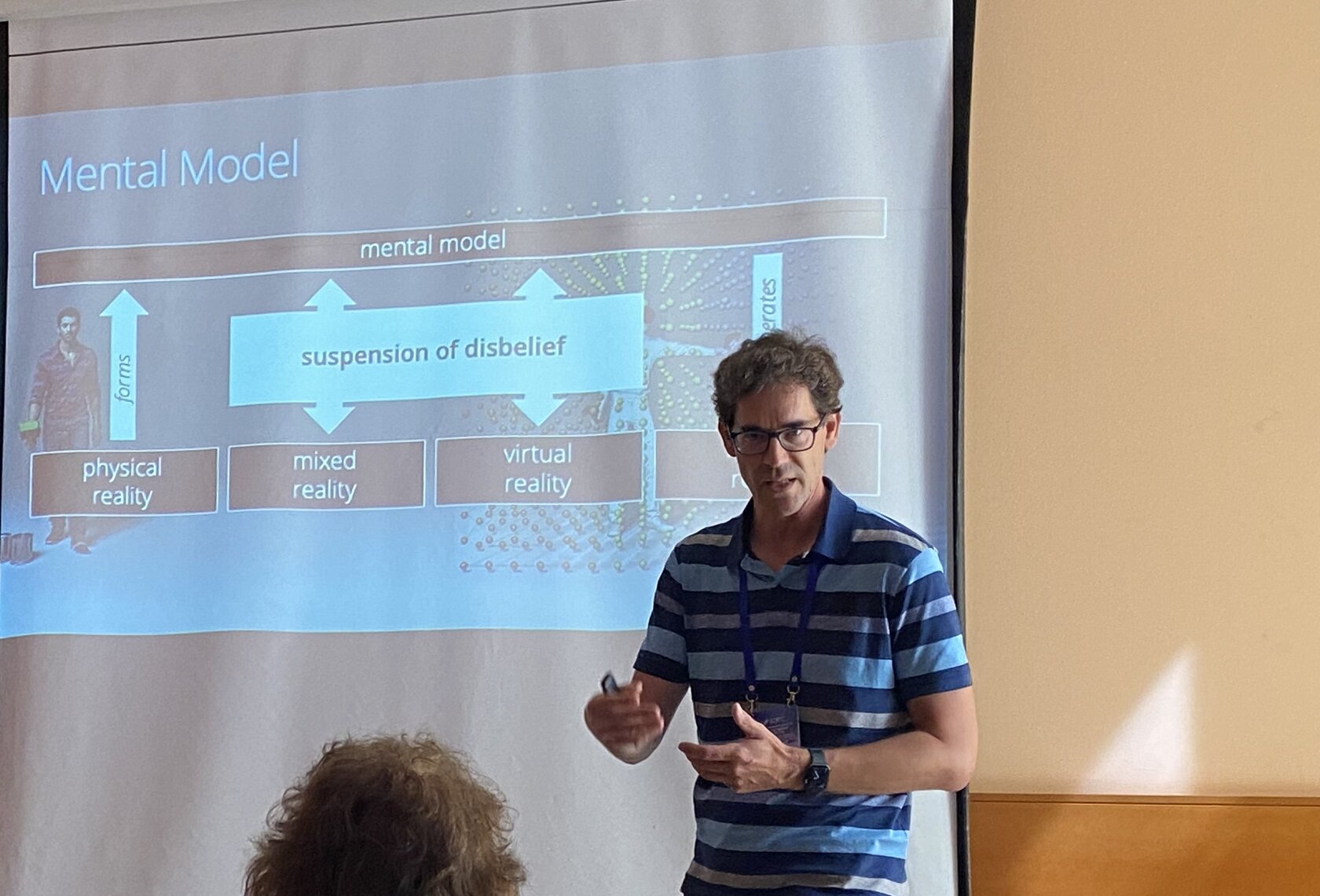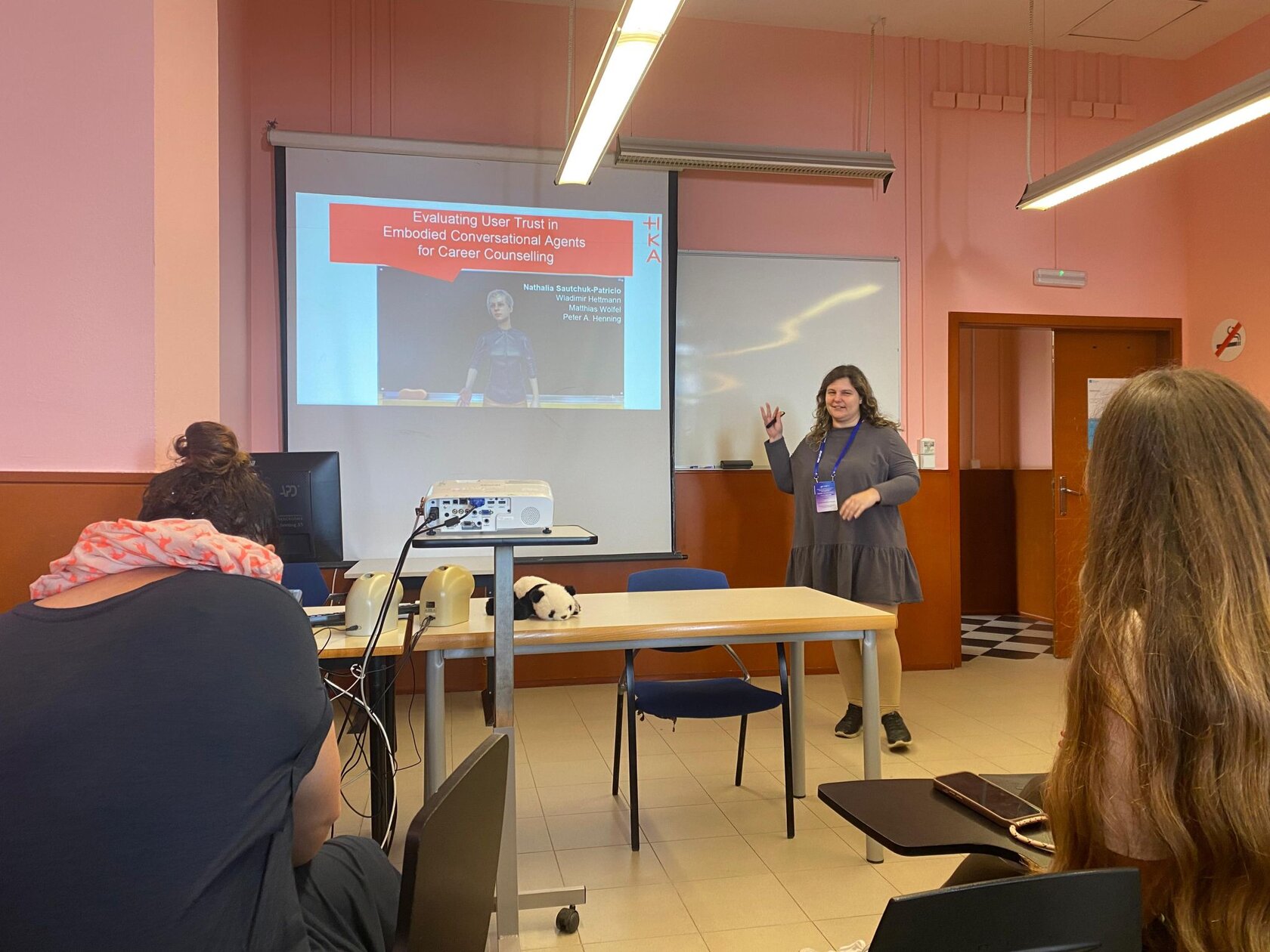The IEEE-sponsored International Conference on Education Technology and Computers (ICETC) took place at the University of Barcelona from September 18 to 21, 2025. The Institute for Intelligent Interaction and Immersive Experience (IIIX) was represented with four contributions.
Best Student Paper for VR research
Fiona Schmidbauer presented her qualitative long-term study on the spatial positioning of students and teachers in the virtual learning space. In her videography, which she carried out over several semesters in the VR Campus, she compares spatial practices in virtual reality (VR) with those in the physical lecture hall - for example, how proximity and distance arise, how teachers and students position themselves in the space and what role spatial orientation plays for social aspects of learning. She received the Best Student Paper Award for her contribution, a special recognition of her academic work, which she developed together with co-author Matthias Wölfel.
While the study uses the VR Campus as a research environment to investigate social spatial practices in virtual learning spaces, the VR Campus itself became the subject of another presentation.
Invited speech on the VR Campus
Prof. Dr. Matthias Wölfel, Institute Director, was an invited speaker at ICETC 2025. In his presentation, he introduced the VR Campus developed at the institute, an immersive learning environment that tests new didactic concepts in VR. In the VR Campus, students and lecturers can not only hold lectures, but also interact together in 3D environments and work on virtual objects. The aim is to make immersive media usable for university teaching and to explore new forms of teaching and learning. The VR Campus has already received several awards, including the HKA 2024 Teaching Award.
In addition to VR as an educational technology, the IIIX is also focusing intensively on the role of AI in educational processes and was represented at the conference with two further contributions.
Trust in career counselling with AI
Nathalia Sautchuk-Patricio presented her research on user trust in embodied conversational agents (ECAs) for career counselling. In workshops with school classes, she worked with Wladimir Hettmann, Matthias Wölfel and Peter Henning to investigate how young users' trust in AI-based assistants is influenced by design, appearance and behavior - for example: Does the virtual assistant appear trustworthy? Is the job recommendation taken seriously? The study provides insights into a possible future of digital study and career guidance in which AI-based systems can be used specifically to support young people.
Humor as a strategy for learning with chatbots
Karl Fischer, also a doctoral student and employee at IIIX, worked with Thorsten Zylowski and Matthias Wölfel to investigate how chatbots with different styles of humor can support learning processes. The research team analyzed whether and how different forms of humor can be imitated by chatbots, and to what extent they are actually perceived as motivating and conducive to learning in certain learning situations.
Fiona Schmidbauer and Karl Fischer are both doing their doctorates in the Knowledge Media doctoral college in cooperation with Karlsruhe University of Education and Furtwangen University of Applied Sciences, where Prof. Wölfel is also an active speaker. Nathalia Sautchuk-Patricio is doing her doctorate via the Promotionsverband Baden-Württemberg at IIIX.
Interdisciplinary exchange and new impulses
Taking part in the ICETC not only offered all participants a platform to present their own work, but also the opportunity to network with international colleagues and gain new impetus for their own research.
"The genuine interest that the participants showed in our research was really great," reports doctoral student Fiona Schmidbauer. "I received valuable feedback on my PhD topic and also new food for thought that will help me to refocus and further develop my research in the future. Especially as a PhD student, it's nice to be able to go out with your research after several months of work, which can often feel a bit isolated, and then receive such great feedback."
The IIIX is very pleased about the appreciation for its own research and the successful visibility on the international stage.


